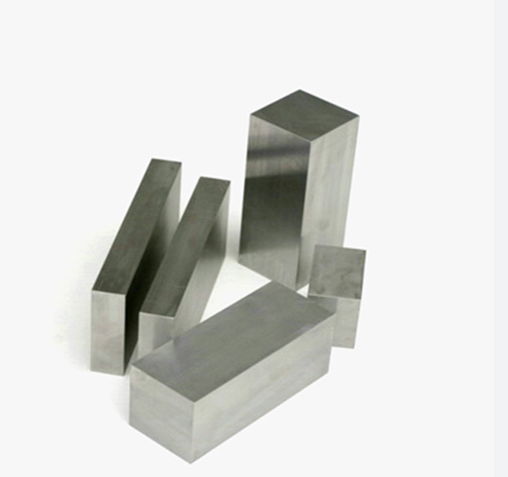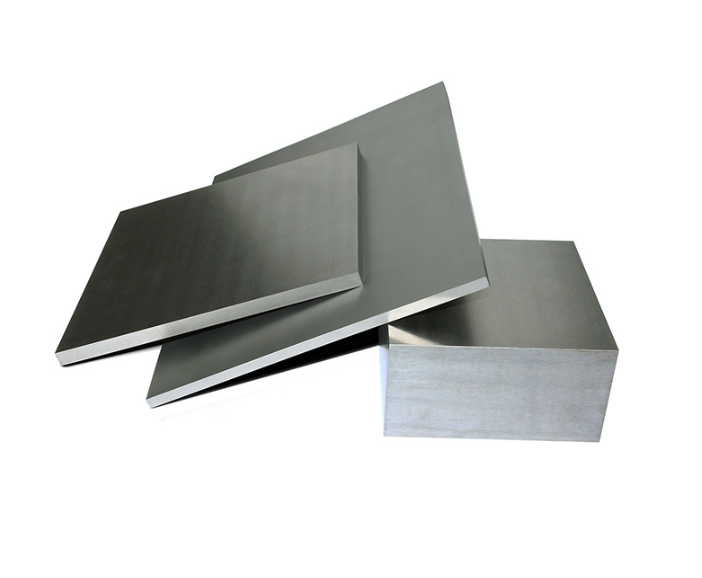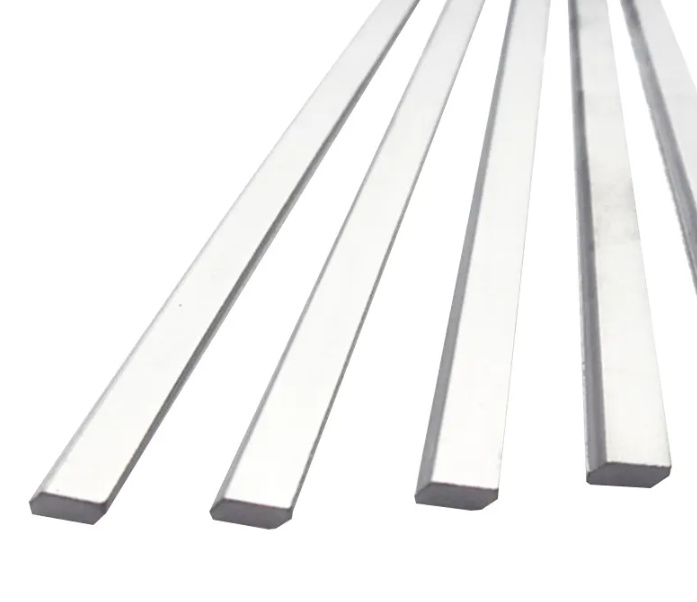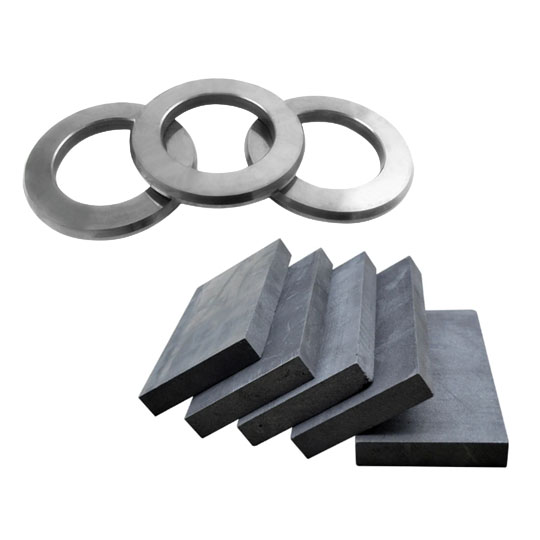Introduction
Definition of solid carbide blanks
Solid carbide blanks are high-performance cutting tool materials that are used in various industries such as aerospace, automotive, and manufacturing. These blanks are made from a combination of tungsten carbide and cobalt, which gives them exceptional hardness, toughness, and wear resistance. Solid carbide blanks are known for their ability to withstand high temperatures and maintain their cutting edge for extended periods of time. They are commonly used in the production of drills, end mills, reamers, and other cutting tools. With their superior performance and durability, solid carbide blanks play a crucial role in improving productivity and efficiency in machining operations.
Applications of solid carbide blanks
Solid carbide blanks have a wide range of applications in various industries. One of the main applications of solid carbide blanks is in the manufacturing of cutting tools, such as drills, end mills, and reamers. The high hardness and wear resistance of solid carbide make it an ideal material for these tools, ensuring their durability and precision. Additionally, solid carbide blanks are also used in the production of metalworking tools, such as punches and dies, due to their excellent strength and toughness. Other applications include the fabrication of wear parts, such as nozzles and bearings, as well as in the production of specialized components for the aerospace and automotive industries. Overall, solid carbide blanks play a crucial role in enhancing productivity and efficiency in various manufacturing processes.
Advantages of using solid carbide blanks
Solid carbide blanks offer several advantages in various industries. Firstly, they provide exceptional hardness and wear resistance, making them ideal for applications that require cutting, drilling, or milling. Additionally, solid carbide blanks have excellent thermal stability, allowing them to withstand high temperatures without deformation. This makes them suitable for use in high-speed machining operations. Furthermore, solid carbide blanks have superior dimensional accuracy, ensuring precise and consistent results. Finally, their durability and long tool life contribute to cost savings in the long run. Overall, the use of solid carbide blanks can greatly enhance productivity and efficiency in manufacturing processes.
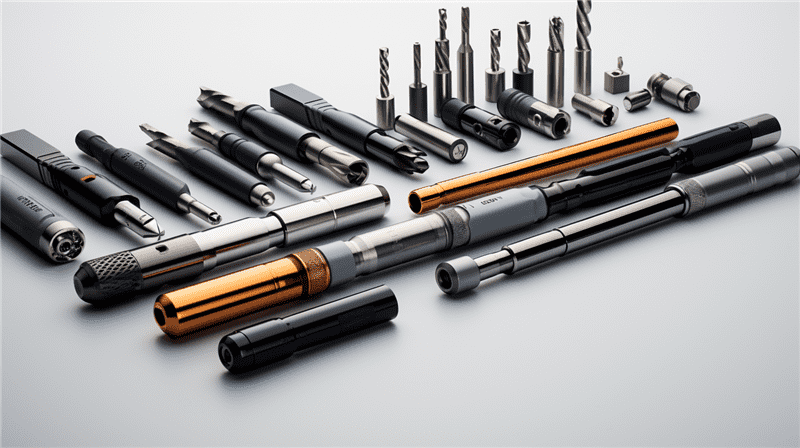
Manufacturing Process
Selection of raw materials
Solid carbide blanks are an essential component in the manufacturing of cutting tools. The selection of raw materials for solid carbide blanks is a critical process that directly impacts the performance and durability of the end product. Various factors are considered during the selection process, including the composition, grain size, and purity of the carbide material. Additionally, the manufacturing process and quality control measures play a crucial role in ensuring the desired properties of the solid carbide blanks. By carefully choosing the right raw materials, manufacturers can produce high-quality solid carbide blanks that meet the specific requirements of different cutting applications.
Mixing and blending
Mixing and blending are essential processes in the production of solid carbide blanks. These processes involve combining various raw materials to create a homogeneous mixture that can be shaped and formed into the desired carbide blank. The quality of the mixing and blending directly affects the final product’s performance and durability. To ensure optimal results, manufacturers use advanced equipment and precise techniques to achieve uniform distribution of the materials and eliminate any potential inconsistencies. Additionally, strict quality control measures are implemented throughout the mixing and blending process to maintain the integrity of the solid carbide blanks.
Compacting and shaping
Solid carbide blanks are widely used in the manufacturing industry for various applications. One important process in the production of solid carbide blanks is compacting and shaping. During this process, the carbide powder is compressed and formed into the desired shape using specialized machinery and tools. The compacting and shaping of solid carbide blanks is crucial as it ensures the uniform distribution of the carbide particles, resulting in a high-quality end product. Additionally, this process also helps to enhance the strength and durability of the carbide blanks, making them suitable for demanding applications in industries such as aerospace, automotive, and machining. Overall, compacting and shaping play a vital role in the production of solid carbide blanks, enabling the creation of reliable and high-performance tools and components.
Properties of Solid Carbide Blanks
Hardness and wear resistance
Solid carbide blanks offer exceptional hardness and wear resistance, making them ideal for a wide range of applications. The high hardness of these blanks allows them to withstand the most demanding cutting and machining processes with minimal wear. Additionally, their superior wear resistance ensures prolonged tool life and reduces the need for frequent replacements. This makes solid carbide blanks a cost-effective choice for industries such as aerospace, automotive, and manufacturing. Whether it’s drilling, milling, or turning, solid carbide blanks provide the durability and performance needed to achieve precise and efficient results.
High temperature resistance
Solid carbide blanks are known for their exceptional high temperature resistance. This unique property makes them ideal for applications that involve extreme heat and thermal stress. Whether it’s in the aerospace industry, automotive manufacturing, or metalworking, solid carbide blanks can withstand the most demanding conditions. Their ability to maintain their hardness and strength even at elevated temperatures ensures optimal performance and longevity. With their impressive high temperature resistance, solid carbide blanks continue to be a popular choice for industries that require reliable and durable materials in extreme environments.
Chemical stability
Solid carbide blanks exhibit excellent chemical stability. They are highly resistant to corrosion and can withstand exposure to a wide range of chemicals. This makes them ideal for use in various industries, including aerospace, automotive, and medical. The chemical stability of solid carbide blanks ensures their long-lasting performance and reliability in demanding environments.
Types of Solid Carbide Blanks
Solid rods
Solid rods are a crucial component in many industries, particularly in the manufacturing and machining sectors. These rods, also known as solid carbide blanks, are made from high-quality solid carbide material, which offers exceptional hardness and durability. Solid carbide blanks are used to create various cutting tools, such as drills, end mills, reamers, and taps. Due to their superior strength and wear resistance, solid carbide blanks provide excellent performance and longer tool life. Additionally, these blanks can be customized and shaped according to specific requirements, making them highly versatile for different applications. Whether it’s for metalworking, woodworking, or high-speed machining, solid carbide blanks are the go-to choice for professionals seeking precision and reliability in their operations.
Solid bars
Solid carbide blanks are widely used in various industries for their excellent hardness, toughness, and wear resistance. These solid bars are known for their exceptional strength and durability, making them ideal for applications that require high precision and long tool life. With their superior performance, solid carbide blanks have become a popular choice for machining operations, such as drilling, milling, and turning. Whether it’s for automotive, aerospace, or manufacturing industries, solid carbide blanks provide the reliability and efficiency needed to meet the demands of modern production processes.
Solid plates
Solid plates are an essential component in the production of solid carbide blanks. These plates are made from high-quality carbide material, ensuring durability and strength. They serve as the foundation for the manufacturing process, providing a solid base for the shaping and cutting of the carbide blanks. Solid plates are carefully designed and precision-engineered to meet the strict requirements of the industry. With their exceptional hardness and resistance to wear, solid plates play a crucial role in the production of high-performance solid carbide blanks.
Applications
Cutting tools
Solid carbide blanks are a crucial component in the manufacturing of cutting tools. These blanks are made from a high-quality, durable material that allows for precise and efficient cutting. With their exceptional hardness and wear resistance, solid carbide blanks are ideal for producing tools that can withstand the demands of various cutting applications. Whether it’s drilling, milling, or turning, cutting tools made from solid carbide blanks offer superior performance and longevity. Additionally, the versatility of solid carbide blanks allows for the creation of a wide range of cutting tool designs, ensuring that manufacturers can meet the specific needs of their customers. Overall, solid carbide blanks are an essential element in the production of high-performance cutting tools, enabling industries to achieve greater precision and productivity.
Drilling tools
Solid carbide blanks are widely used in the manufacturing of drilling tools. The exceptional hardness and toughness of solid carbide make it an ideal material for producing high-performance drilling tools. These blanks are carefully engineered to provide excellent cutting performance, precision, and durability. Whether it is for drilling holes in metal, wood, or other materials, solid carbide blanks ensure efficient and reliable drilling operations. With their superior wear resistance and heat resistance, they can withstand the demanding conditions of drilling applications, resulting in increased productivity and reduced downtime. Overall, solid carbide blanks play a crucial role in the effectiveness and efficiency of drilling tools.
Milling tools
Solid carbide blanks are widely used in milling tools due to their exceptional hardness and durability. These blanks are made from a solid piece of carbide material, which provides superior performance compared to other types of tooling. The high hardness of solid carbide allows for faster cutting speeds and increased productivity. Additionally, the durability of these blanks ensures long tool life, reducing the need for frequent replacements. Milling tools made from solid carbide blanks are highly sought after in industries such as automotive, aerospace, and manufacturing, where precision and efficiency are paramount. With their ability to handle high-speed machining and maintain sharp cutting edges, solid carbide blanks are an essential component in the production of high-quality milling tools.
Conclusion
Summary of key points
Solid carbide blanks are a crucial component in various industries, including manufacturing and engineering. These blanks are made from high-quality carbide material, which offers exceptional hardness and durability. The key advantage of solid carbide blanks is their ability to withstand high temperatures and resist wear and tear, making them ideal for demanding applications. Additionally, these blanks provide excellent precision and accuracy, ensuring the production of high-quality products. In summary, solid carbide blanks are essential for achieving superior performance and longevity in a wide range of industrial processes.
Future developments
Future developments in the field of solid carbide blanks are expected to focus on enhancing the material’s performance and durability. Researchers and manufacturers are continually exploring ways to improve the hardness, toughness, and wear resistance of solid carbide blanks, making them suitable for more demanding applications. Additionally, advancements in manufacturing processes and technologies are anticipated, leading to more precise and cost-effective production of solid carbide blanks. These developments will not only benefit industries such as aerospace, automotive, and machining, but also contribute to the overall progress of cutting-edge materials in various sectors.
Importance of solid carbide blanks in various industries
Solid carbide blanks play a crucial role in various industries due to their exceptional properties and versatile applications. These high-quality blanks are widely used in manufacturing processes that require precision and durability. Industries such as automotive, aerospace, and medical rely on solid carbide blanks for cutting, drilling, and shaping materials with utmost accuracy. The hardness and wear resistance of solid carbide blanks make them ideal for machining tough materials like stainless steel, titanium, and hardened alloys. Additionally, their thermal stability and resistance to heat make them suitable for high-speed machining operations. With their superior performance and reliability, solid carbide blanks have become an essential component in modern industrial applications, ensuring efficient and cost-effective production processes.

